Martuwarra is a sacred ancestral being, with the right to live and flow.
It is the most sacred entity in the West Kimberley region and is central to Aboriginal spirituality and First Law, customary law. Martuwarra, the Fitzroy River, is the largest registered Aboriginal Cultural Heritage site in Western Australia and has been National Heritage Listed since 2011. Under First Law, Warloongarriy Law, the law for Martuwarra, Fitzroy River, we have a law of obligation, a duty of care and love to protect Martuwarra’s right to live and flow.
This First Law is grounded in values and ethics, our spirituality teaches us as Warloongarriy people, a custodial ethics of care and the importance of ensuring inter-generational equity of these teachings to our young people and our fellow Australians. This recognition was cited in Fortescue Metals – All five Justices of the Full Federal Court (FFC) unanimously confirmed that [1]:
“The very foundation of traditional Aboriginal law and customs …is in the spiritual, and the intermingling of the spiritual with the physical, with people and with land. That is how Aboriginal law works.”
“The distinctions … between spiritual belief and real property rights, or personal property rights, are not to be imported into an assessment of the existence and content of aboriginal customary law. To do so would be to destroy the fabric of that customary law.”
It is through this type of legal standing and merit that we extend legal pluralism to recognise and give value to the realisation that for thousands of years Aboriginal people have lived in harmony with the many unique, rare and exotic Martuwarra plant and animal species. Federal Court judges have recognised that it would be unlawful to force Aboriginal people not to uphold our spirituality and our values and ethics in continuing to ensure that the Martuwarra and peoples have the right and responsibility to live free from foreseeable harm.
Martuwarra Time
Martuwarra; the Fitzroy River, tributaries, floodplains, jila’s and soaks
mark the sites where Yoongoorookoo, Galbardu, Kurrpurrngu, Mangunampi, Paliyarra and Kurungal
give life to the Rainbow Serpent’s First Law, living waters, living free.
The historic colonial governance of Australia continues to promote an adversarial relationship between the wider Australian community and Aboriginal Australians. Government policy promotes uncertainty and division within the broader community. Far too often politicians and the media focus on differences between sections of the community rather than shared interests.
Australians have different historic, cultural and spiritual relationships with land and water. It’s time to ‘close the gap’ and fundamentally shift Aboriginal water interests to a true water property right. Over two hundred years of colonialism, settlement and immigration have created a complex pluricultural weave of societies across the continent. Aboriginal people maintain deep roots in the land, water and spirit of Country.
The River is watching in the waiting time
Waiting to see what the humans will do.
Lots of talk of water planning, water allocation, licences too
Somewhere in there is a hook, uncertainty
We will give some water to Aboriginal people, not sure what the number is, it’s likely to displease.
They took it from the Territory, 30 % was the failed model decreed. [2]
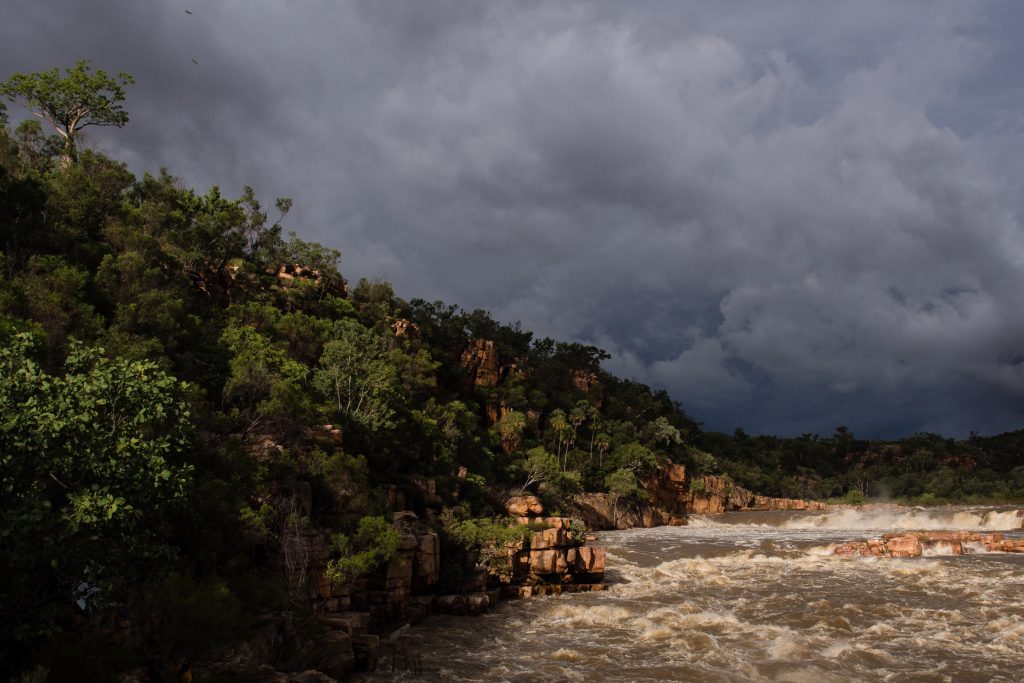
There is a pattern of nonsense decisions by governments in support of extractive industries. For example, when the world’s oldest evidence of human thought was blown up at Juukan Gorge in the Pilbara in Western Australia in 2020, the CEO and two other executive officers of the multinational corporation resigned their posts. Yet it wasn’t long after that that the relevant minister of the government of the day, responsible for destroying the ancient 46,000-year-old petroglyph site left politics and was appointed a director on the same multinational company board.
What do the people of Martuwarra do?
We know, water markets, water trading, is all about greed.
Greed’s got them beat, my Ngoonoo would say, how could my sister have known what was coming our way.
Don’t worry about what you can’t do!
Get on with what you can
Her spirit still guides me, and I know she has a plan.
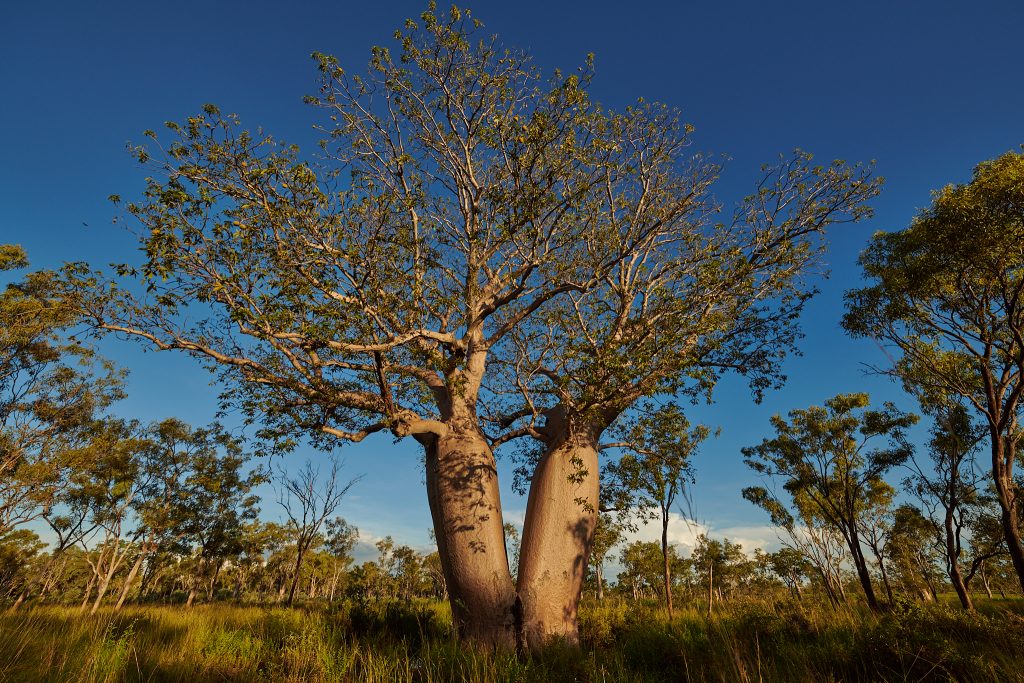
There is an urgent need for Australians to reduce our greenhouse gas emissions.
Coal, gas, and oil are all carbon emitting fossil fuels. We need to carefully consider the use, costs and benefits of the carbon we produce. Government support for new coal or gas extraction projects is a political decision, it is not based on credible economics, science or common-sense. The notion that gas will assist the transition from coal to renewables is nonsense as the volume of gas to be fracked will generate far more carbon than mining with fewer jobs. Similarly, vast opencut coal mines won’t provide many jobs, any ‘benefits’ being far outstripped by the immense amount of carbon produced. [3]
We are conscious that existing coal mines fund regional jobs. In turn, these jobs support local families, regional small business and community services, sports and social clubs and public infrastructure. Regional families should have the opportunity to continue to invest in their social cohesion and sustainable life ways. Further investment is required to transition the workforce away from coal into the renewable energy transition.
Living with whiteness, colonialism, divided, conquered, manipulated and ruled
First the Land, then the slaves, now the water.
‘What’s going to be left for Blackfella?’ was the elder’s cry for water justice
8th October 2021 United Nations did decree, it’s a human right to live in a clean environment, free from contamination, polluted air, misery
Not be poisoned, cheated, defrauded in rules, designed for the predatory elite.
Established coal mining towns in Central Queensland and the Hunter region have generations of families and friends that make a community. Government policy is to invest into the regions to create new sustainable industries and increase regional populations. However, government practice is also pushing gas as a regional development strategy. [4]
Gas is purported to be a transition fuel from coal to renewables. State and federal governments are pouring billions of taxpayer funding into private gas fracking infrastructure such as ports, processing plants and pipelines.
Don’t ask for a statutory process, procedural fairness, distributive justice at the same time
We are in the waiting time, waiting for government and the big corporations who determine the greater good for themselves, not humankind
Trade off, water interest not water rights, trade off lives, those of our kin, the birds, fish, trees, air, and sea breeze.
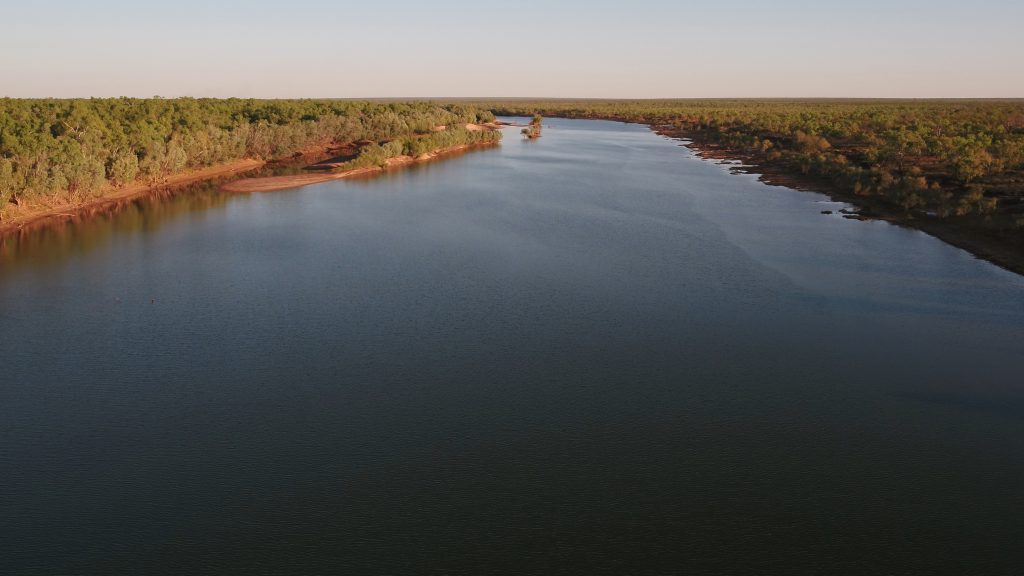
It is hard to make the case for closing regional coal mining to reduce Australia’s carbon footprint, while at the same time the government sponsors greenhouse gas emitting carbon expansion. Fracking gas will in fact force the early closure of communities that have historically developed around mining and bring about immeasurable distress to regional families. By scheduling the responsible closure of coal mines over time, these communities will be able to develop and transition into new sustainable industries powered by renewable sources.
Given the exponential growth of renewable power volume and uptake, gas infrastructure will soon become obsolete, leaving many billions of dollars in stranded assets. Traditional custodians and environmentalist are urging the Western Australian government to protect the Kimberley from fracking.
STOP!
This would be the biggest man-made destruction in the world
Maybe somewhere amongst these grid lines there will be some happy fat cats, fracking up the River Country
So much more than the Canada Tar Sands, this will be forever wrong
Shale Gas 1-billion-dollar pipeline, which they want to be the new song.
Imagine if they invested 1 billion dollars into our region, our people, our lifeways, livelihoods, our economies.
Transitioning coal into renewables, with no new gas coming online
No one wants stranded assets to meet the transition energy deadline
Songline, singing we want to see, just energy transition for these families to be free.
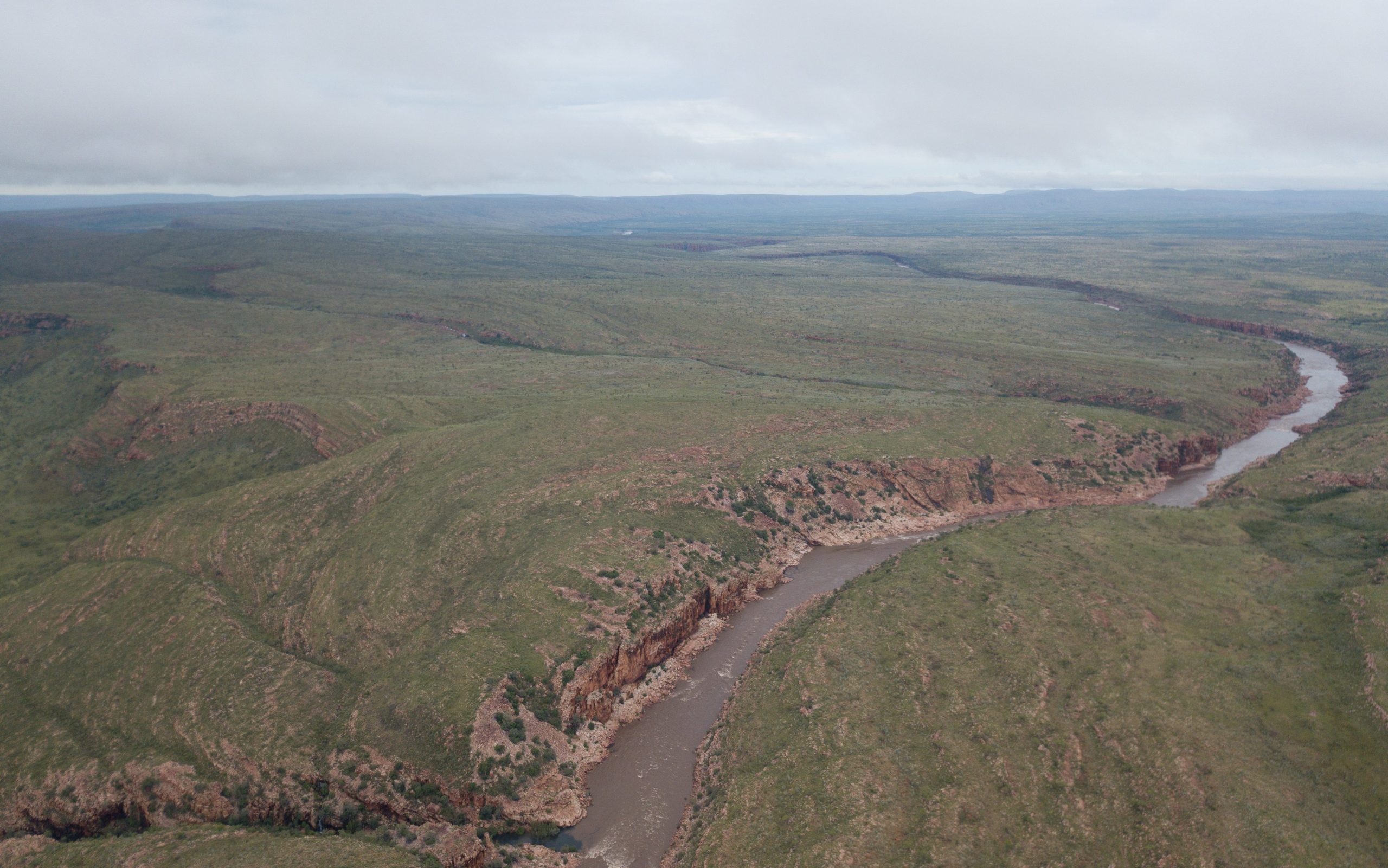
Opportunities have been lost from the senseless cost of investing public money into private gas development. Government funding is better spent on creating jobs by improving existing and establishing new community infrastructure and services such as schools, parks, hospitals, roads, aged care and childcare. The opportunity to establish new sustainable industries is at risk from destroying beautiful remote places and essential resources such as water.
The contradiction between government rhetoric and practice is the management of Australia’s contribution to climate change. Government policy has been to close established coal mining in Central Queensland and the Hunter region. Then transfer current coal mining energy extraction to more profitable gas extraction in the Kimberley and Northern Territory. The ‘Lock the Gate’ movement demonstrates the interests regional and remote farming communities share with Aboriginal people. Love of the land and respect for water and family, health and prosperity for all people living in the bush.
River Country watching and waiting… in this modern Dream time
I know you hear me; you feel me, I feel you too
Write these words down … Dream me to you and we wait for the wet to come
Tell the city people about me, tell them all to stand and come
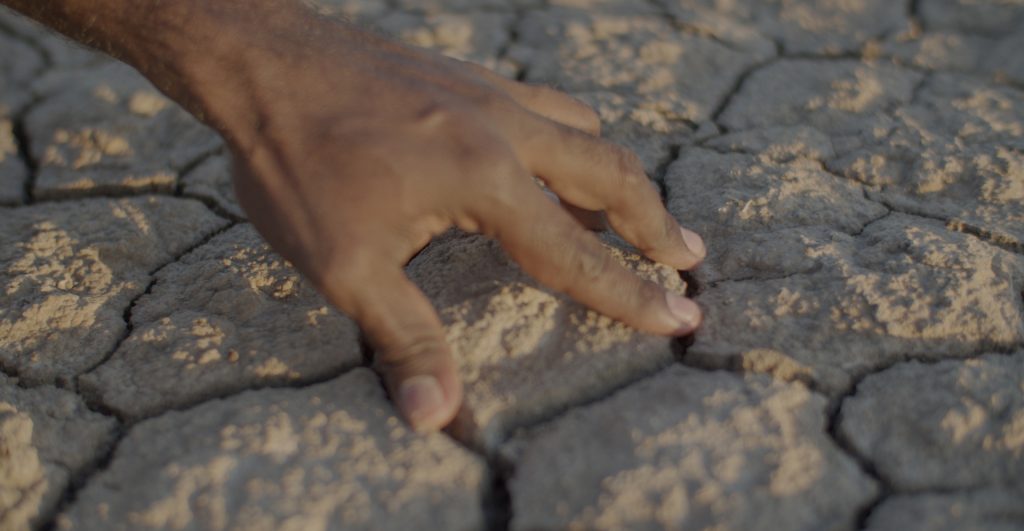
Political support for the resource extraction industry is at times brutal, as it exerts corporate dominance over the interests of the Australian people, most particularly, people living in the regions especially Aboriginal Australians.
First Law stories that teach ethics and values are now being retold in a contemporary format. With the ‘Story of Fracking’ we understand the importance of keeping this ‘methane bomb’ in the ground.
The original ancestor creation stories are about the values, ethics and behaviour required for being a spiritually connected self-regulating person. These ancient stories have been passed down for tens of thousands of years by countless generations who have shaped our world for the collective good of all life. Today we continue to ‘Wake Up the Snake’, to awaken the consciousness of people, to bring people on a journey to share, learn and work together to develop a unity pathway, towards just development on just terms.
There are secrets here, I am the largest registered Aboriginal cultural heritage site
We have been promised never again, but I am fearful, ecocide and genocide we will become
They don’t seem to be listening despite 50,000 good and decent human beings asking government’s meaning of the 2011 song?
International experience shows that building enormous new gas infrastructure facilities will cause the removal of Indigenous people and the ecocide of rare and endangered species within a unique greenfield bioregion. Indigenous land management methods such as fire management of tropical savanna grasslands sequestrate carbon and store it in a vast natural carbon sink.
They came from the east, came with the songline story in 2011
I belong to the Nation, National Heritage a treasure, diverse cultures, and environment living waters and their guardians all together
Protect Martuwarra Fitzroy River, protect me now and forever,
Martuwarra Fitzroy River. Always Was. Will it Always Be?
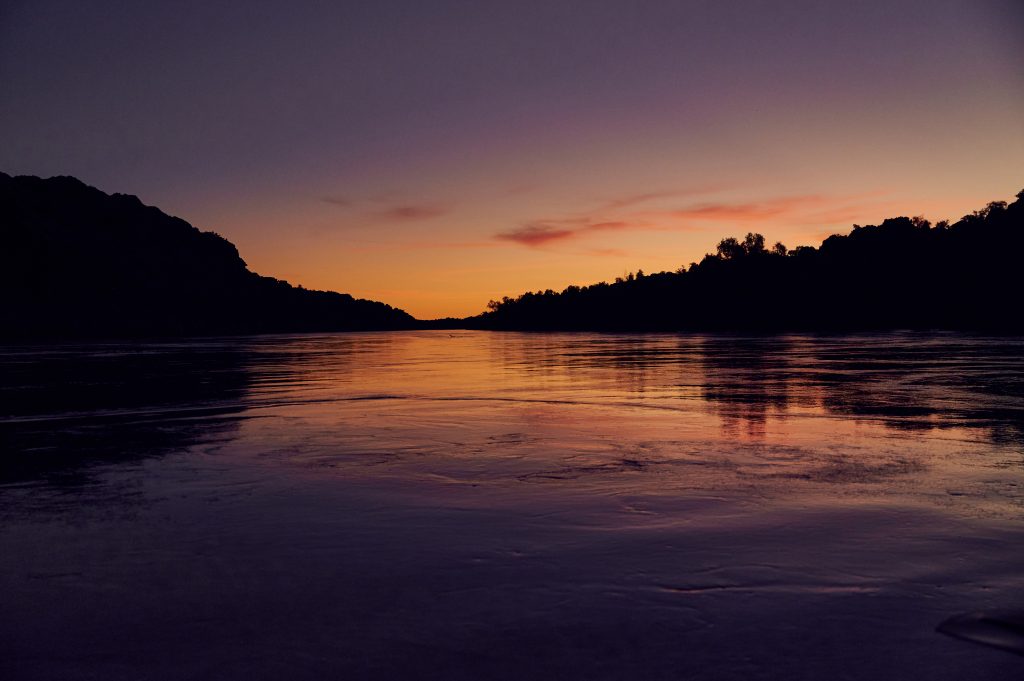
The Western Australian government’s partnership with industry and the resources sector unions is a consortium. The WA Budget invests generously in corporate welfare. These subsidies breach fundamental conflict of interest ethics. They collaborate for their mutual benefit, diminishing the quality of life of Traditional Owners and other residents now and into the future. A good case to consider is the Odessa Minerals drilling program that is sponsored by the WA state government. (See the shareholder release.) Traditional Owners view the drilling program in the headwaters of Martuwarra, the Fitzroy River, as a quest for ‘conflict diamonds’ as they have not given full, prior and informed consent.
Government politics manipulates policy, funding and programs to promote unjust development. Governments attract funding from greenhouse carbon emitters through taxes and levies, receiving corporate political donations, and kickbacks such as executive and consultancy jobs, or corporate board membership.
The WA government acknowledges that fracking is dangerous and has banned it from 98% of the state. But it is clear from their approach that we citizens in the North, who are predominantly Aboriginal, will be the trade-off for not fracking southwest WA.
The only place fracking has been allowed in Western Australia is Martuwarra, the Fitzroy River catchment in the Canning basin and one other location. If fracking is allowed to proceed in the Canning Basin, international evidence tells us it will be the destruction of one of the most biodiverse and culturally rich rivers of the world.
Serpents swim together waiting for the waramba and the kajan waters to rise
We wait, we twist up into the sky and down into underground
We hold the songlines, the stories and the forever memories
First Law, Warloongarriy Law, we all dance, moving and rotating the circle while the men sing the song.
Warloongarriy people, Daisy Bates claims, danced together to hold the Martuwarra Law strong in song.
The WA government greenhouse gas management plans are subservient to the federal Environment Protection and Biodiversity Conservation Act 1999. There is a need for a Commonwealth led inclusive decision-making process regarding the future of fossil fuels. We need governance that provides fair and just outcomes for all regional and remote Australians, including the fundamental recognition of Traditional Owners’ innate right to make decisions over their ancestorial lands. We are building new economies of culture, science, regeneration and tourism. Martuwarra Country and people need a fair go, for the world to have a climate chance.
When we stand united, we hold the Dreaming time, from past, present, and future, and we sing together a new Martuwarra song.
Endnotes
[1] Fortescue Metals Group v Warrie on behalf of the Yindjibarndi People [2019] FCAFC 177; BC201909419.
[2] See William Nikolakis & R. Quentin Grafton, “Law versus justice: the Strategic Aboriginal Water Reserve in the Northern Territory, Australia”, International Journal of Water Resources Development, 2022, 38:1, 11-29 and the Garma International Indigenous Water Declaration(2008). Available at https://www.afn.ca/uploads/files/env/garma-international.pdf
[3] See Positive Futures Series: What’s the Fracking Fuss all About?, The Brisbane Institute. Available at http://www.brisinst.org.au/wp-content/uploads/2011/10/Positive-Futures-Series-110823-Whats-The-Fracking-Fuss-All-About-9-21-111.pdf
[4] See Thomas G.Measham, Lavinia Poruschi & Raymundo Marcos-Martinez, “Fueling regional development or exporting value?”, The role of the gas industry on the Limestone Coast, South Australia, Extr Ind Soc. 2020 Apr; 7(2): 628–638.
Anne Poelina
Professor Anne Poelina PhD, PhD, MEd, MPH&TM, MA, is Co-Chair of Indigenous Studies at the Nulungu Institute Research, University of Notre Dame, and Adjunct Professor, College of Indigenous EducationFutures, Arts & Society, Charles Darwin University, Darwin. Anne is the Murray Darling Basin (MDB) inaugural First Nations appointment to its independent Advisory Committee on Social, Economic and Environmental Sciences (2022) and was awarded the Kailisa Budevi Earth and Environment Award on International Women’s Day (2022). Anne is also a Peter Cullen Fellow for Water Leadership (2011). In 2017, she was a Laureate from the Women’s World Summit Foundation (Geneva), elected Chair of the Martuwarra Fitzroy River Council (2018), and is currently a Visiting Fellow with Institute of Postcolonial Studies, Melbourne and the Crawford School of Public Policy at the Australian National University, Canberra. ORCID: https://orcid.org/0000-0001-6461-7681 and personal website: www.majala.com.au
Ian Perdrisat
Ian Perdrisat’s career and personal life merge to focus on improving the circumstances Aboriginal Australian people experience. Ian is Barkinji, Wangkamurra, and European. He has had a long and respected academic career in Indigenous education and student support. For over thirty years Ian has lived and worked in remote Aboriginal communities in the Kimberley region of Western Australia. He has long advocated for local Indigenous youth ‘sustainable life’ promotion programs. He continues to promote holistic Aboriginal community driven responses to complex colonial imposed social, cultural and economic challenges. Ian has masters’ degrees in Education, Public Health and Tropical Medicine, and Arts (Indigenous Social Policy). Currently Ian is a PhD (Education) candidate at the University of Newcastle for which he was awarded the Vice-Chancellor’s Scholarship.
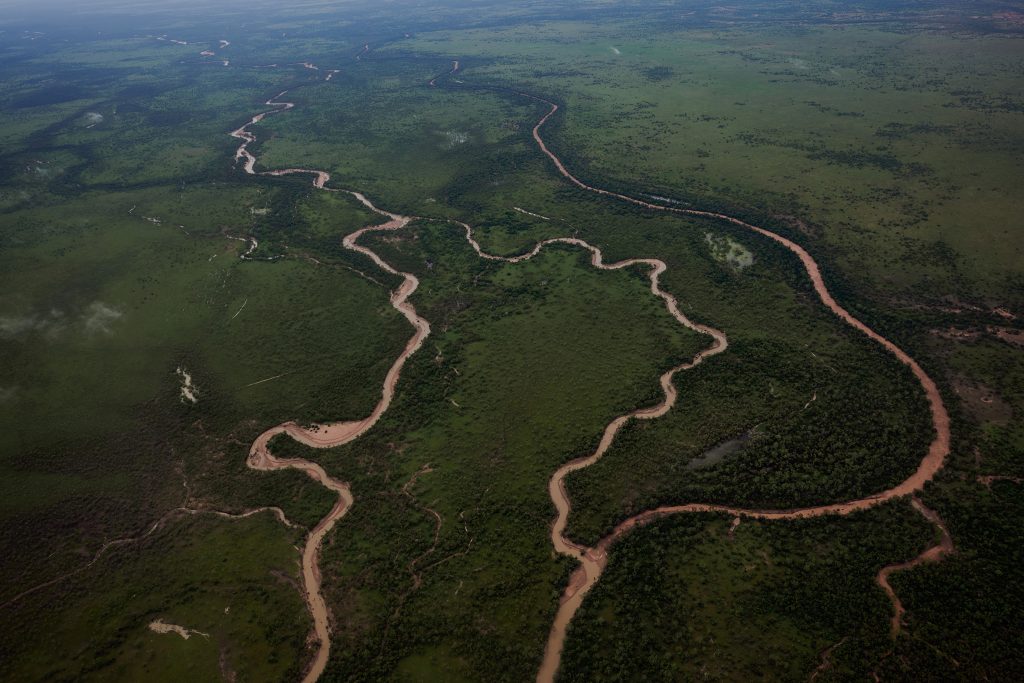
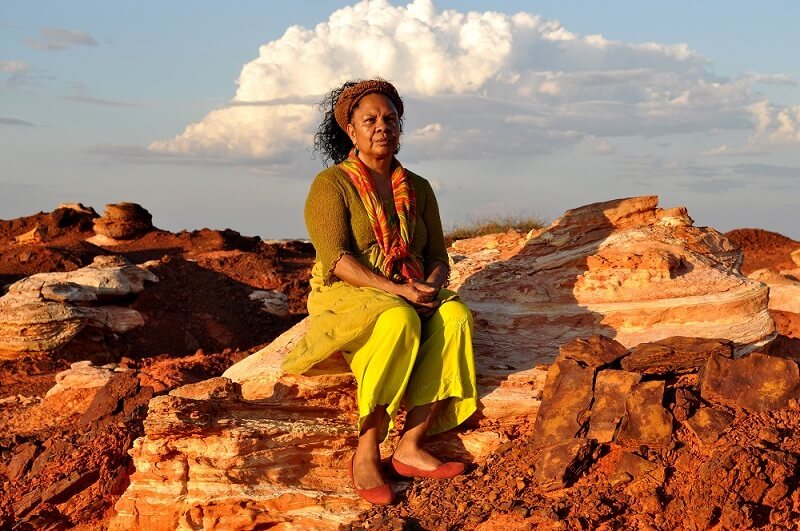
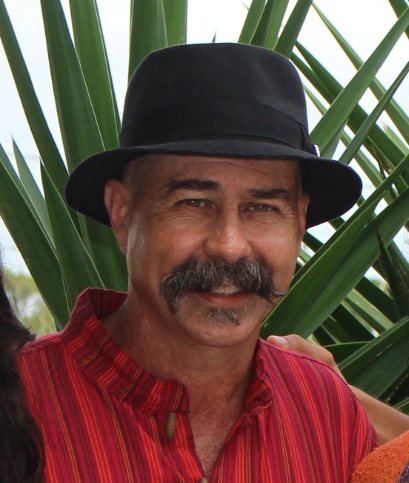
One thought on “Sustainable Futures, a view from Martuwarra”